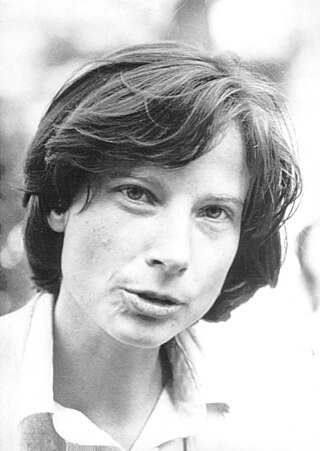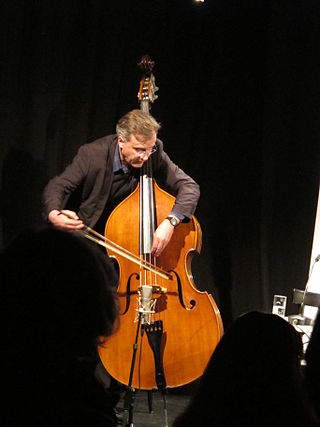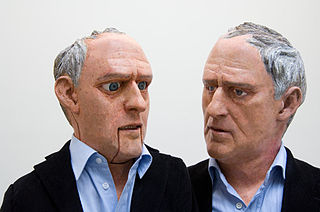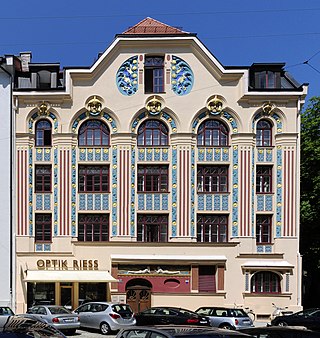Salome Kammer is a German actress, singer and cellist.

Patrik Ringborg is a Swedish conductor, member of the Royal Swedish Academy of Music.

Moritz Eggert is a German composer and pianist.

Claudia Schmölders, also Claudia Henn-Schmölders is a German cultural scholar, author, and translator.

Dieter Dorn is a German theatre director, also for the opera, the manager of the Münchner Kammerspiele from 1983 to 2001 and now manager of the Bavarian Staatsschauspiel.

Gisela! oder: Die merk- und denkwürdigen Wege des Glücks is an opera by Hans Werner Henze.

Jan Müller-Wieland is a German composer and conductor of classical music and an academic teacher. He is known for his operas.
Lichtburg has been a popular name for cinemas in Germany. Those in Berlin, Essen and Düsseldorf have been particularly famous; the Lichtburg in Oberhausen is the site of the International Short Film Festival Oberhausen, and Quernheim is the smallest municipality in Germany with a cinema, also called Lichtburg.

Stephan Huber is a German sculptor and object artist.

Eytan Pessen is a pianist and voice teacher, currently at the Opera houses of Amsterdam, Frankfurt, Hamburg, Vienna (Volksoper), Zürich and international festivals. He was former opera director of the Semperoper in Dresden, artistic advisor to Teatro Massimo in Palermo, Teatro San Carlo in Naples, and former casting director of the Staatstheater Stuttgart.

Ernst Haiger was a German architect.

Peter Fitz was a German stage and film actor.
Rudolf Sellner, born Gustav Rudolf Sellner was a German actor, dramaturge, stage director, and intendant. He represented in the 1950s a radical Instrumentales Theater. After decades of acting and directing plays, he turned to staging operas, and was a long-time intendant of the Deutsche Oper Berlin from 1961, when the Berlin Wall was built. He staged notable world premieres, including Ernst Barlach's play Der Graf von Ratzeburg in 1951, Ionesco's Mörder ohne Bezahlung in 1958, Giselher Klebe's Alkmene in 1961 for the opening of the Deutsche Oper, and Aribert Reimann's opera Melusine in 1971.
Torsten Fischer is a German assistant director and theater intendant.
Stefan Soltész was a Hungarian-born Austrian conductor. Trained in Vienna, from 1997 to 2013 he was artistic director of the Aalto Theatre and Generalmusikdirektor in Essen, leading the opera house to international recognition.

Christof Nel was a German theatre and opera director. He began his career as an actor but moved on to direct opera productions at major opera houses. Plays that he directed were invited to the Berliner Theatertreffen, such as the world premiere of Thomas Brasch's Rotter in 1978 and Thomas Bernhard's Alte Meister in 1998. Nel directed the world premiere of Rolf Riehm's Das Schweigen der Sirenen at the Staatstheater Stuttgart in 1994. His works at Oper Frankfurt included Puccini's Madama Butterfly in 2001, Wagner's Tristan und Isolde in 2003 and the first production in German of Aulis Sallinen's Kullervo in 2011. He taught at the Akademie für Darstellende Kunst Baden-Württemberg from 2011 to 2022.
Ulrich Muhlack is a German historian.
Stefan Moses was a German photographer living in Munich.
Günther Rühle was a German theatre critic, book author and theatre manager. He directed the feuilleton (editorial/entertainment) sections of major newspapers and was regarded as an influential theatre critic, beginning in the 1960s. He managed the Schauspiel Frankfurt from 1985 to 1990. Rühle was a member of the PEN-Zentrum Deutschland. From 1993 to 1999, he was president of the Deutsche Akademie der Darstellenden Künste in Frankfurt. He published books about the history of theatre in Germany, and its criticism.

Katharina "Katja" Paryla was a German actress, stage director and theatre director. She was known especially for her work on stage, including at the Deutsches Theater Berlin where she often played leading roles with her partner Alexander Lang directing, including the title roles of Goethe's Iphigenie auf Tauris and Medea by Euripides, and Alice in Strindberg's Totentanz.













